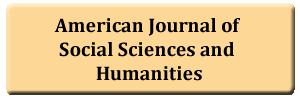Developing Responsibility for Learning in Higher Education in Tanzania: Experiences from Undergraduate Programmes
DOI:
https://doi.org/10.20448/804.4.1.62.69Keywords:
Responsibility for learning, higher education, Undergraduate students, Instructional models, Implemented instructional models, Competence-based model, Traditional model, Elusive competence-based model, Elevated competence-based model.Abstract
In recent years, the requirement for students to shoulder responsibility for learning has been conceived as one of important attributes of a student or a graduate. This attribute is assumed to be developed through the application of competence-Base Model (CBM) in higher education as opposed to the application of the Traditional Model (lecture to seminar model) practiced in higher education for centuries. Given the importance of shouldering the responsibility for learning among students, particularly, in developing lifelong learning attitude among students, it was thus vital to study to understand whether or not the instructional models designated to operate or the implemented instructional models developed the important feature among undergraduate students. This study adopted a longitudinal study design. This study had a sample size of 183 respondents in phase I and a sample size of 70 respondents in phase II. Further, the study used questionnaire to collected data in two consecutive semesters to year one undergraduates. The Elusive Competence-Based Model (ECBM) and the Elevated Traditional Model (ETM) were instruction models in operation at the time of this study. The ECBM resulted in gradual deterioration of students’ responsibility for learning whereas the ETM resulted in gradual development of students’ responsibility for learning toward a positive direction. The study concludes that the use of seminars in an effective way contributes in promoting responsibility for learning among undergraduate students.



